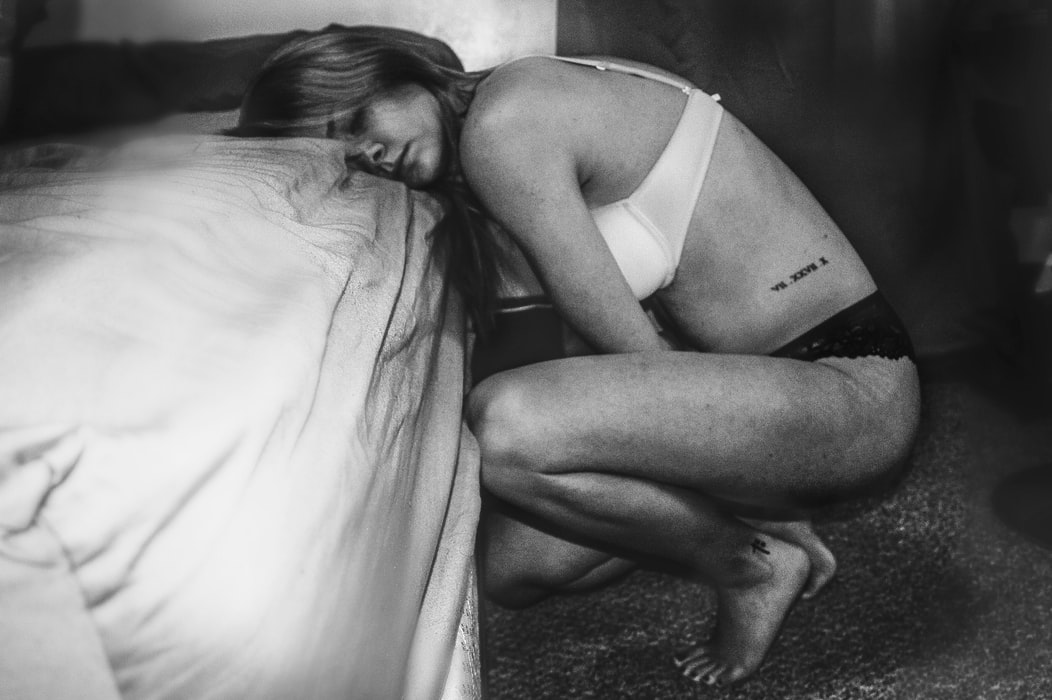Mental health like physical health is an extremely important component of a person’s well-being. A sad reality is that mental health is very least dealt as a health problem in our society. Especially many women tend to neglect their mental health. Most common reason behind this ignorance is unawareness about the condition itself. So, the first step towards effective treatment or therapy is to create awareness about mental health. This article is a step towards building awareness about postpartum PTSD that would help many women to come out and seek help.
What is Postpartum PTSD?
As the name suggests it is a stress disorder caused by any traumatic event that would have happened, in this case any event related to pregnancy or childbirth. Postpartum PTSD I’d differentiate from postpartum depression and has to be given different treatment and aid.
What causes postpartum PTSD?
PTSD is caused by any traumatic incident, like a car accident or physical assault of any sort. These incidents keep circulating in the patients mind as though they are happening in the present again with them. They experience panic and stress, which changes their body function and mess with their behaviour. Similarly, in postpartum PTSD the whole process of pregnancy, delivery or post delivery period can be a period when the mental health can be affected. Textbooks cite incidents like:
- Cord prolapse.
- Emergency or unplanned C – section.
- History of PTSD in past delivery.
- History of PTSD during non-pregnant phase.
- Lack of support or help during pregnancy.
- Loss of close one during pregnancy.
- Pre-term delivery which leads to baby being in the NICU
These can be few reasons for postpartum PTSD in women. Best-selling maternity Author, and senior midwife Kathy Fray of MothersWise.com, summarizes that “the commonest cause of a women suffering from post-Childbirth PTSD, is when the woman was anticipating a beautiful natural birth, but ended up experiencing a dramatic emergency obstetric delivery which felt out-of-control or outside-her-control”. Fray continues “Most women, especially first-timers, don’t fully appreciate just how much opting for Epidural anaesthesia changes her Labor from ‘Low-Risk’ to ‘High-Risk’, which consequently drastically increases the chances of her Baby requiring a traumatic instrumental or surgical delivery – and that trauma doesn’t just impact on the Mother – it also impacts hugely on her Baby – but it seems it is mostly only the Women we speak of as suffering trauma”.

What are the symptoms of postpartum PTSD?
- New moms who go through P-PTSD have intrusive flashbacks and horrifying nightmares, which replay in the patients mind in an even magnified manner, in a pregnant lady’s case it’s the childbirth.
- They have difficulty sleeping.
- They feel detached from the baby and others, they get startled on again and again with the same memory of birthing.
- The mother would get panic attacks and this attack can be triggered by a smallest stimulus.
What are the top therapies for Postpartum PTSD?
- Proper diagnosis of the disorder is the first key for best therapy. Many times, P-PTSD is missed diagnosed as postpartum depression. This is because many symptoms of both the disorders overlap with each other. So, depending on the disorder the treatment has to be channelled. Note: A temporary depressive state occurring around Day 2-5 postpartum (typically Day-2) is generally normal hormonal changes occurring in woman, and not clinical depression.
- Psychotherapy – Cognitive behavioural therapy CBT is trauma-focused, meaning the trauma event(s) are the centre of the treatment. It focuses on identifying, understanding, and changing thinking and behaviour patterns.
- Eye movement desensitisation and reprocessing therapy (EMDR), which involves bringing distressing memories to mind, while a therapist uses an external stimulus such as tapping on the knee or guiding your eye movements. The tapping helps the brain remember it is in the present, not in the world of flashbacks, and trains the brain to reinterpret the memories and keep them in the past. Positive memories are identified, and eye movements are linked to those positive memories. This helps reduce the lingering effects of the traumatic memories, while also helps in the development of effective coping strategies.
- Hypnosis, acupuncture, or other complementary and alternative medicine (CAM) therapies
- Drug Medication (pharmaceutical anti-depressants)
I hope I was able to throw some light on this sensitive but very important topic about mental health.
As Kathy Fray (Maternity Guru & Author at MessyMothers.com) also comments “Maternal Mental Wellbeing is a very under-resourced area of healthcare in practically every country, which means that the ‘The System’ oftentimes can only afford the cost and manpower to diagnose and treat the ‘worse-of-the-worst’ cases – which means many women (most women?) with PTSD tend to suffer in silence, oftentimes unaware of why they feel the way they do”. Thus, if you or any of your near-and-dear ones are facing potentially undiagnosed postpartum PTSD, then do lend a helping hand to assist them with information, because knowledge is power.














+ There are no comments
Add yours